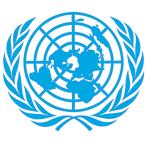1540 Fact Sheet
On 28 April 2004, the United Nations Security Council unanimously adopted resolution 1540 (2004) under Chapter VII of the United Nations Charter which affirms that the proliferation of nuclear, chemical and biological weapons and their means of delivery constitutes a threat to international peace and security. The resolution obliges States, inter alia, to refrain from supporting by any means non-State actors from developing, acquiring, manufacturing, possessing, transporting, transferring or using nuclear, chemical or biological weapons and their means of delivery.
Resolution 1540 (2004) imposes binding obligations on all States to adopt legislation to prevent the proliferation of nuclear, chemical and biological weapons, and their means of delivery, and establish appropriate domestic controls over related materials to prevent their illicit trafficking. It also encourages enhanced international cooperation in this regard. The resolution affirms support for the multilateral treaties whose aim is to eliminate or prevent the proliferation of weapons of mass destruction and the importance for all States to implement them fully; it reiterates that none of the obligations in resolution 1540 (2004) shall conflict with or alter the rights and obligations of States Parties to the Treaty on the Non-Proliferation of Nuclear Weapons, the Chemical Weapons Convention, or the Biological Weapons Convention or alter the responsibilities of the IAEA and OPCW.
On 27 April 2006, the Security Council extended the mandate of the 1540 Committee for a further two years with the adoption of resolution 1673.
On 25 April 2008, the Security Council adopted resolution 1810, which extended the mandate of the 1540 Committee for a further period of three years, with the assistance of a Group of Experts, until 25 April 2011. Through Resolution 1810 (2008), the Security Council urged the 1540 Committee to continue strengthening its role in facilitating technical assistance, including by engaging actively in matching offers and requests for assistance, thereby strengthening its clearinghouse function. The Security Council also requested the 1540 Committee to consider a comprehensive review of the status of implementation of Resolution 1540 (2004). The report of this comprehensive review was published on 1 February 2010.
On 20 April 2011, the Security Council adopted resolution 1977, which reaffirms that the proliferation of nuclear, chemical and biological weapons and their means of delivery constitutes a threat to international peace and security, and extended the mandate of the 1540 Committee for a period of ten years to 2021. Resolution 1977 (2011) also provides for two further comprehensive reviews, one after five years and one prior to the renewal of the Committee’s mandate. Additionally, the 1540 Committee is mandated by resolution 1977 (2011) to continue to strengthen its role to facilitate the provision of technical assistance and to enhance cooperation with relevant international organisations. The Committee is also mandated to continue to refine its outreach efforts, and to continue to institute transparency measures. On 29 June 2012, the Security Council adopted Resolution 2055 (2012), which enlarged the number of members of the Group of Experts supporting the work of the 1540 Committee from eight to up to nine.
Following the submission of the report of the 2016 comprehensive review to the Security Council, resolution 2325 was adopted unanimously on 15 December 2016. This resolution reaffirmed the obligations in resolution 1540 (2004). Among other things this resolution calls upon all States to intensify their efforts to achieve full implementation of resolution 1540 (2004), focusing, when and where appropriate, on areas where measures should be taken and strengthened.
The Security Council adopted resolution 2572 (2021) unanimously on 22 April 2021 to extend the mandate of the 1540 Committee until 28 February 2022. The Council also decided that the Committee, while continuing its current work pursuant to its mandate, shall continue to conduct and complete the comprehensive review on the status of implementation of resolution 1540 (2004) and submit to the Security Council a report on the conclusion of the review. The comprehensive review was postponed in 2020 due to the COVID-19 pandemic. As the comprehensive review was further postponed in 2021 due to the pandemic, the Security Council unanimously adopted resolution 2622 (2022) on 25 February 2022 to again extend the mandate of the 1540 Committee until 30 November 2022. The Council also decided that the Committee, while continuing its current work pursuant to its mandate, shall continue to conduct and complete the comprehensive review on the status of implementation of resolution 1540 (2004) and submit to the Security Council a report on the conclusion of the review.
Following the conclusion of the 2022 comprehensive review, the Security Council unanimously adopted resolution 2663 on 30 November 2022, extending the mandate of the 1540 Committee for a period of 10 years. It also decides that the 1540 Committee will conduct comprehensive reviews on the status of implementation of resolution 1540 (2004), including through the holding of open consultations of the Committee in New York, both after five years and prior to the renewal of its mandate, including through, if necessary, recommendations on adjustments to the mandate, and will submit to the Security Council a report upon the conclusion of each of those reviews, and decides that, accordingly, the first review should be held before December 2027. The resolution also decides to continue to provide the 1540 Committee with the assistance of its Group of Experts.
